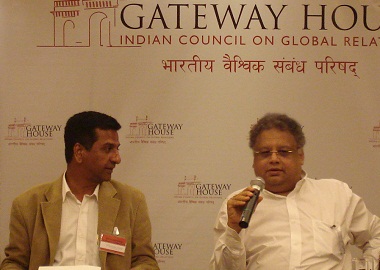
On August 5th, Standard & Poor’s (S&P) downgraded the long-term sovereign rating of the United States from AAA to AA+. It was shortly after the premier Chinese rating agency Dangong downgraded the US debt to A from A+, making U.S. paper the equivalent to Russia’s.
Global investors are divided over S&P’s judgment. The day after the downgrade the Dow lost 5.5%, and all the major global indices like the Nikkei, Shanghai Composite, Hang Seng, DAX lost between 3% and 7%, the Sensex lost 2%, and Brazil’s Bovespa dropped 8.08%. Yet, Japan, the second largest owner of the U.S. Treasury Bills, and investors like Warren Buffet, whose Berkshire Hathaway owns $40 billion in U.S. Treasuries (as much as the Government of India does), came out staunchly in support of the U.S. Treasury.
Indian Finance Minister, Pranab Mukherjee, tried to calm investors by reasserting that the country’s economic fundamentals were strong and the growth trajectory intact. But is it really? Reforms have virtually stalled, and the Parliament is in paralysis. How will India really be impacted? How can it grow and yet be insulated from the global contagion?
Gateway House hosted a meeting on August 24 to discuss these issues with a diverse panel comprising of investor Rakesh Jhunjhunwala (Partner, Rare Enterprises), Pankaj Vaish (Head of Markets, Citi South Asia) and S.P. Kothari (Deputy Dean, MIT Sloan School of Management), moderated by Gateway House’s new Senior Adjunct Fellow for Geo-economics K.N. Vaidyanathan (former Executive Director, SEBI).
